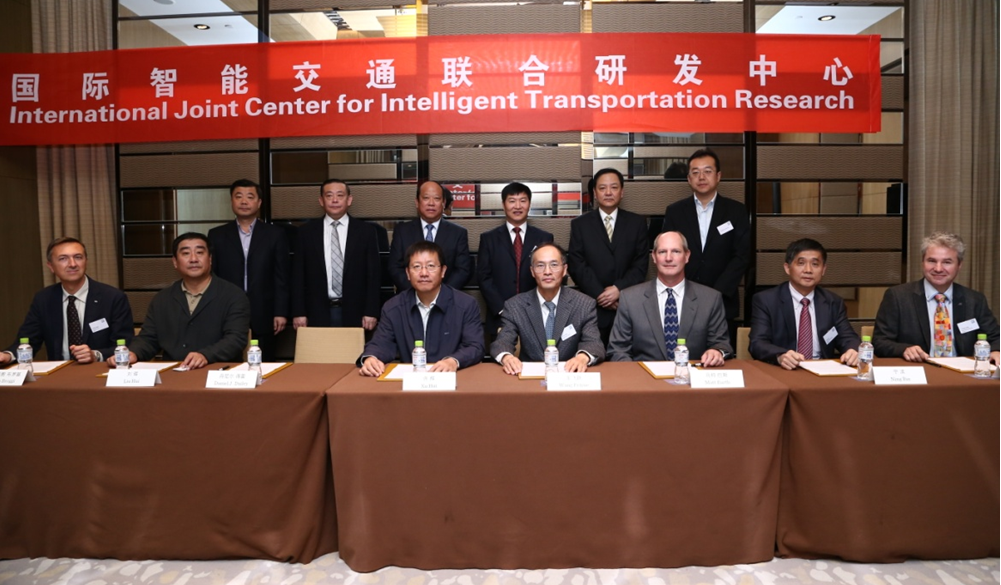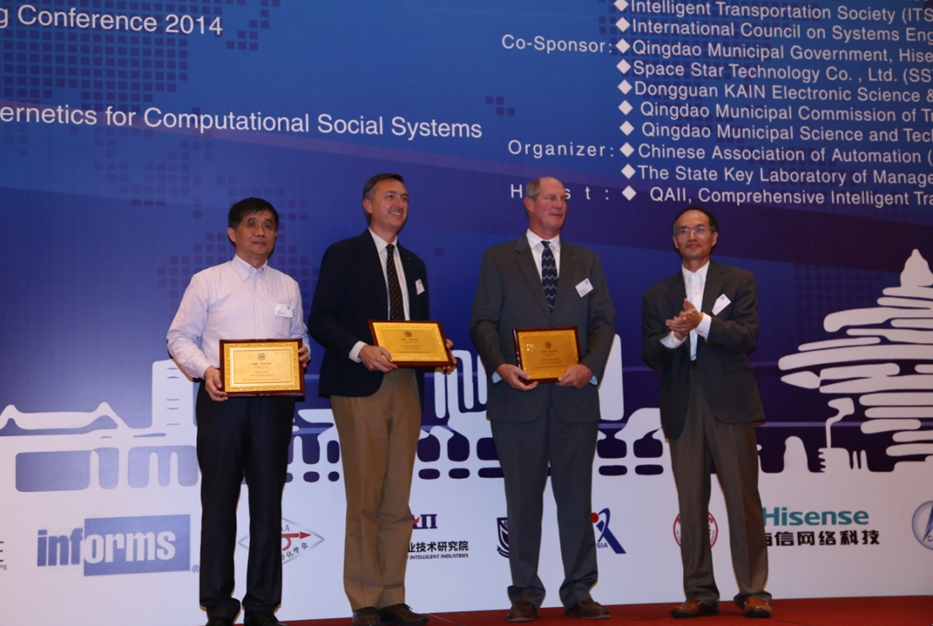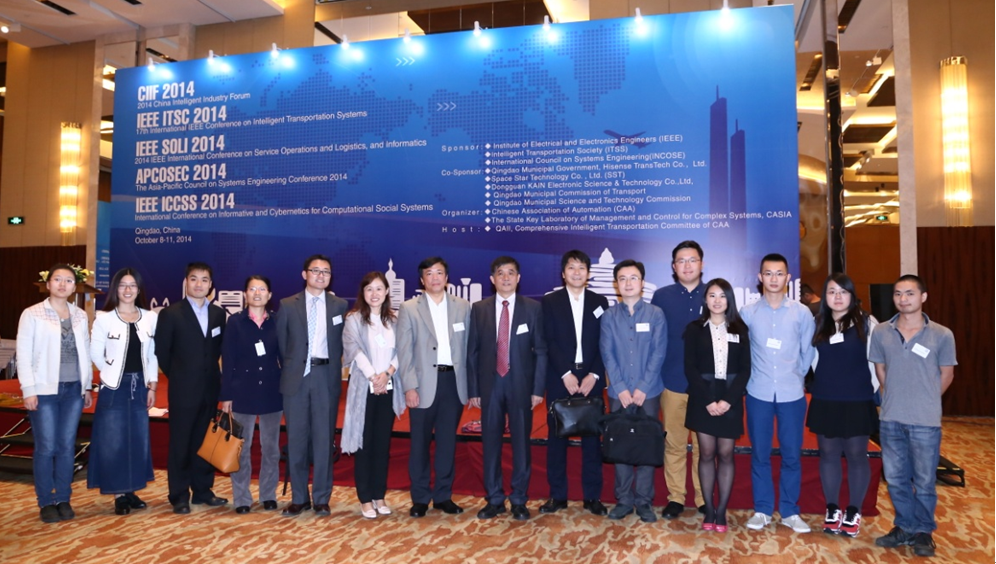From October 8 to 11, 2014, the 17th IEEE Intelligent Transportation System Conference (IEEE ITSC 2014) was held in Qingdao City of Shandong Province. The conference was co-sponsored by the Chinese Association of Automation and the Institute of Automation of the Chinese Academy of Sciences. IEEE ITSC is the highest level international academic conference in the field of Intelligent Transportation which is held annually by IEE ITS Society. It aims to apply advanced technologies of communications, computing and control to the basic and applied research of ITS. Academician ZHENG Nanning, Director General of the Chinese Association of Automation and Prof. WANG Feiyue from the Institute of Automation of the Chinese Academy of Sciences were the chairpersons of this conference. Nearly 600 Chinese and overseas scholars were present at the meeting.
Prof. LIU Xiaoming, Assistant Minister of the Ministry of Transport, Prof. Matthew J. Barth, President of IEEE ITS Society and Prof. NING Bin from Beijing Jiaotong University were invited to deliver keynote speeches. President NING Bin made the speech titled “The Key Issues of Intelligent Control for Rail Systems” introducing key issues of Intelligent Control in the field of rail transit.

The launching ceremony of the “International Joint Center for Intelligent Transportation Research” was held before the conference. This Center was co-founded by the U.S. Department of Transportation, IEEE ITS Society, Beijing Jiaotong University, China Aerospace Science and Technology Corporation and Qingdao Municipal Science and Technology Commission.

During the Award Ceremony of the conference, Prof. Matthew J. Barth, announced the three new-elected IEEE fellows (Prof. Matt Barth from the University of California, Prof. Alberto Broggi from the University of Parma and Prof. NING Bin from Beijing Jiaotong University) and presented certificates to them.

This conference has received papers from dozens of countries. After rigorous review, a total of 512 papers were finally admitted, including more than 20 from BJTU. Faculties and students from BJTU also participated in the discussion of several parallel sessions.





